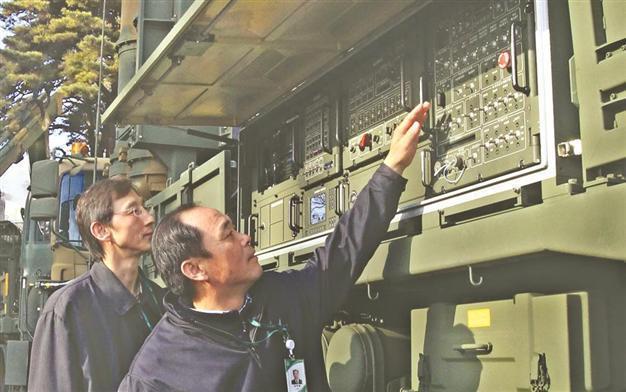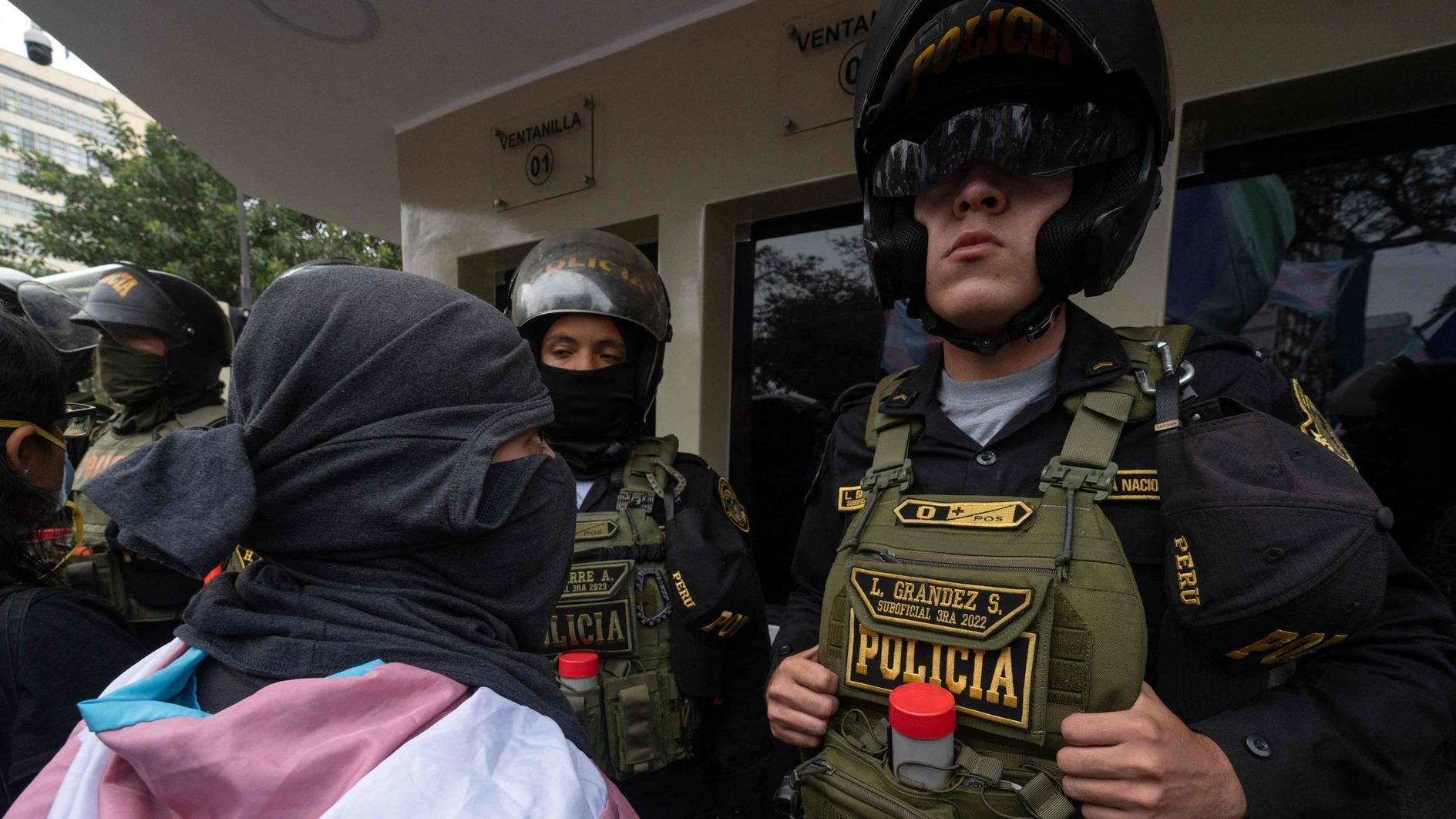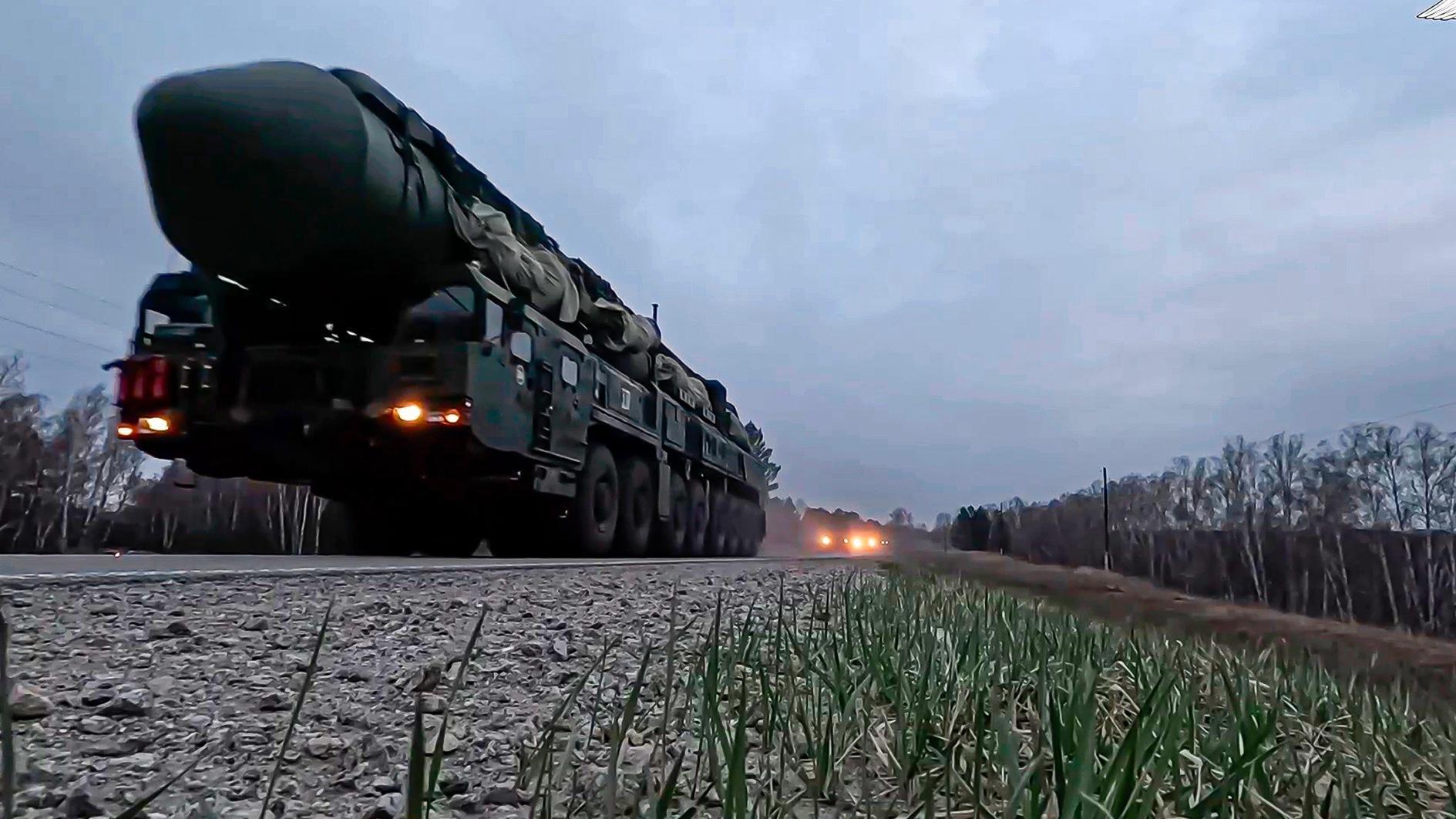US, South Korea agree on longer-range missiles
SEOUL

South Korean members of the Agency for Defense Development display the new Iron Hawk-II missile during a ceremony at its headquarters in the central city of Daejeon. AFP photo
South Korea announced a deal with the United States to almost triple the range of its missile systems to cover the whole of North Korea, a move likely to infuriate Pyongyang.The agreement will allow the South to deploy missiles with a range of 800 kilometers, up from the current limit of 300 kilometers, National Security Advisor Chun Yung-Woo told reporters.
“The biggest purpose of the revision is curbing military provocations by North Korea,” Chun said yesterday. The move may also stoke concern in China, Japan and Russia, parts of which would be within range of the new missiles. Currently, all of South Korea as well as U.S. military installations in Japan and Guam, are within the range of North Korean missile attacks, according to South Korean government data.
‘Nuclear umbrella’
The U.S. stations 28,500 troops in South Korea and guarantees a nuclear “umbrella” in case of any atomic attack. In return, Seoul accepts limits on its missile capabilities. An agreement signed with the U.S. in 2001, the year South Korea joined the Missile Technology Control Regime (MTCR), restricted Seoul to rockets with a range of 300 kilometers and a payload of 500 kilograms.
Chun said the new deal, which will take the range of South Korea’s missiles well beyond MTCR limits, was aimed at “securing a more comprehensive response to missile threats” by the North. The maximum payload for the maximum 800-kilometer range will remain at 500 kilograms, but Chun stressed the two parameters were inversely linked, so that for shorter ranges corresponding payload increases would be allowed.
South Korea has also been allowed to develop unmanned aerial vehicles, or UAVs, with an unlimited payload weight if the flying distance is within 300 kilometers. In April, North Korea was condemned by the U.N. Security Council after a failed long-range rocket launch. U.S. allies including South Korea deemed it a disguised test for the North to upgrade its ballistic missile technology despite Pyongyang’s claim that it was aimed to put a satellite into orbit for peaceful purpose.
Compiled from AFP and Reuters stories by the Daily News staff.
















